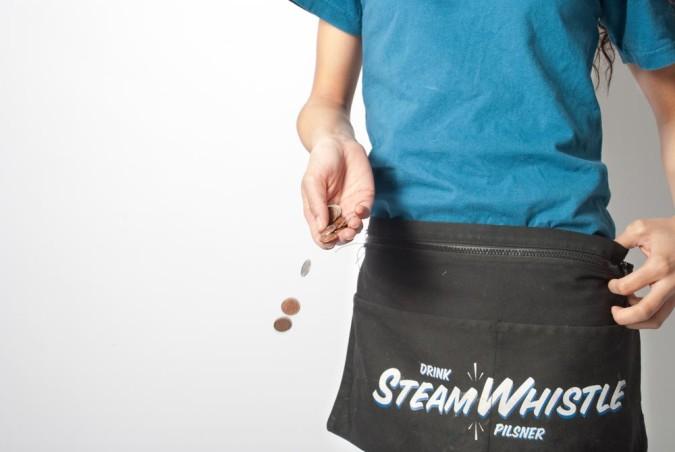A long-standing rule is being enforced at campus restaurants: waiters and waitresses are not allowed to accept tips over 20 per cent in order to avoid the 10 per cent the OneCard office makes off each tip. News Editor Carolyn Turgeon reports
Students paying by OneCard don’t need to bother over tipping an excellent waitress, as they are likely to refuse for fear of being written up.
The Ram in the Rye and Oakham Cafe’s policy on gratuities is that, regardless of the wishes of the customer, the maximum tip percentage that can be applied to a OneCard is 20 per cent.
As an example, when paying for a Student Loan Special, which costs $4.19, you could only tip your server 84 cents if you were using a OneCard.
According to Eric Newstadt, general manager of the Student Centre, this rule is not anything new.
“It predates me considerably,” said Newstadt, who has been the manager for over two years.
The policy was put in place due to the commission that comes out of the tip and goes to the OneCard office for every transaction, which the Student Centre must then pay their employee.
“When students tip on OneCard, I pay ten per cent of that tip,” said Newstadt. “It’s a considerable cut to our revenue.”
Any restaurant pays a fee when a credit or debit card is used to pay for a meal, but it’s usually anywhere between one to three per cent.
“This rate was set with various areas on campus to be able to offer the OneCard as a method of payment for services,” said Darcy Flynn, manager of the OneCard office, in an email. “The 10 per cent should not be considered profit.”
According to Flynn, the fee provides support to the OneCard operations, specifically the transact systems and POS equipment.
John Corallo, director of university business services, said that “every university charges this amount.”
Newstadt was more skeptical. “The payment processing fee from the OneCard office is exuberantly high,” he said. “I’m paying 10 per cent so the university can [fund] other services.”
He said the office is a cash cow in order to fund their business services office, though he clarifies that he is not their accountant and doesn’t know the exact use of their profits.
“They charge a lot of money so they can subsidize non-revenuegenerating services,” he said. Mathew Harvey, a third-year engineering student, thinks students should have the right to tip however much they want.
“If they want to tip more than 20 per cent, they should be allowed to,” he said. Though he doesn’t think he’ll have any problem finishing his meal plan, Naushadh Ali, a firstyear computer engineering student, thinks other students might find this an inconvenience.
“People might tip over 20 per cent on their OneCard to get rid of the money,” said Ali. “Rather than having a cap on how much they can tip, it’ll be better if there was some way for them to get a refund at the end of the semester.”
Newstadt brought up the lack of refund as well, explaining that part of the reason for the tip limit is that students would come in and over tip, wanting the server to give them some of their money back in cash.
“If I were a student and there was a sizeable remainder I would want access to that,” he said. “At this point the university has to have a very clear idea of what’s left in student accounts at the end of the year.
They could track averages and give money back to the students.” Corallo said reevaluating the meal plans to give money back to students is not necessary. He insists that if students follow the posted guidelines in Pitman Hall and the International Living and Learning Centre (ILLC) as to where their plan should be at the end of each week they will be able to properly budget their funds.










Leave a Reply